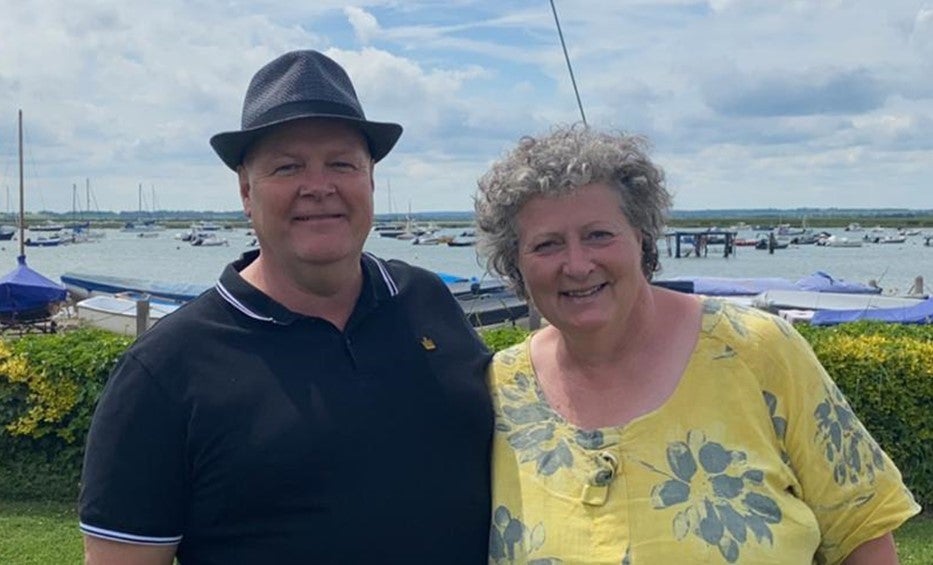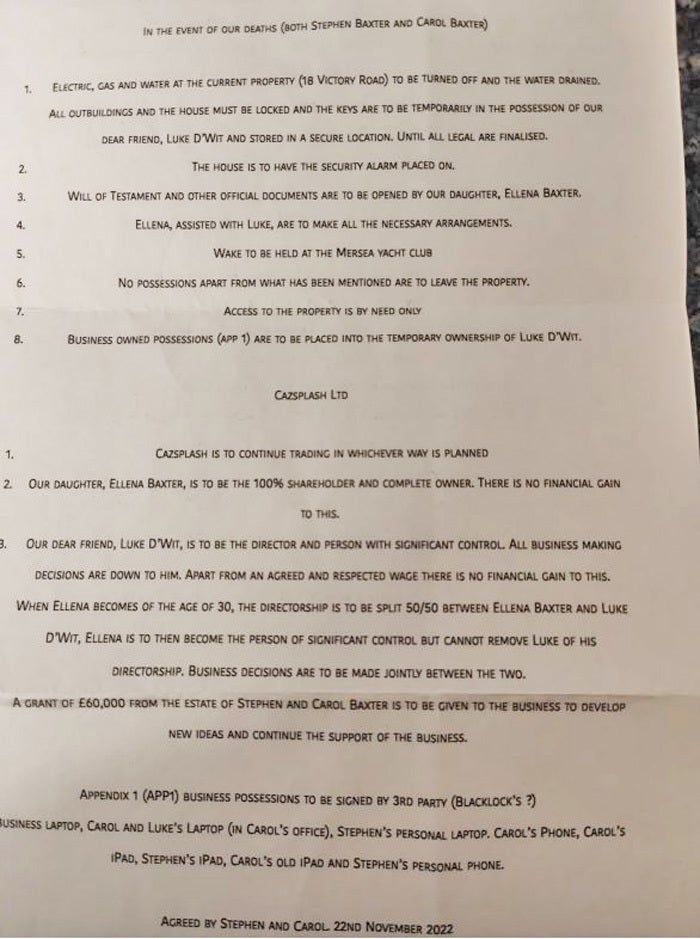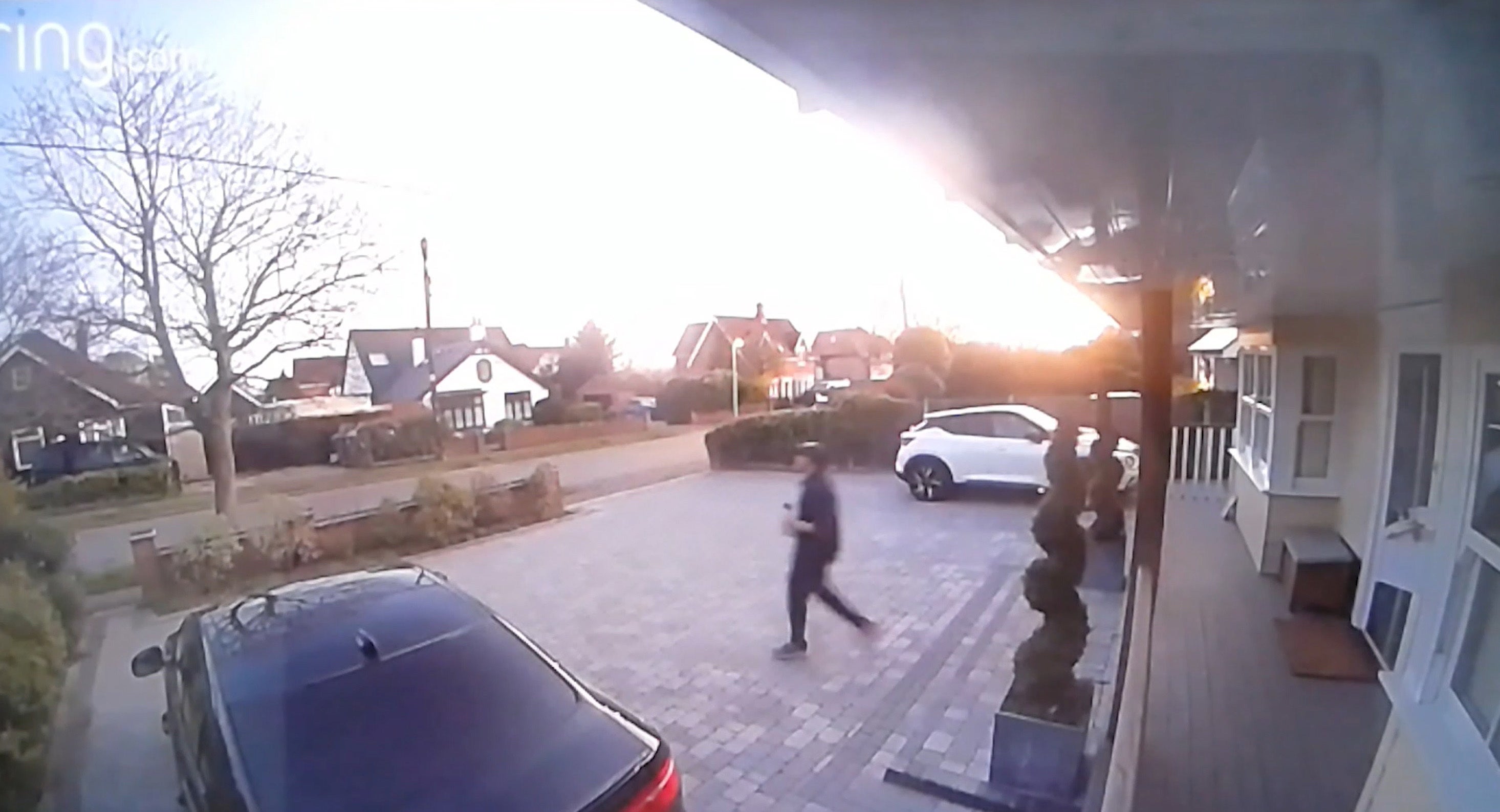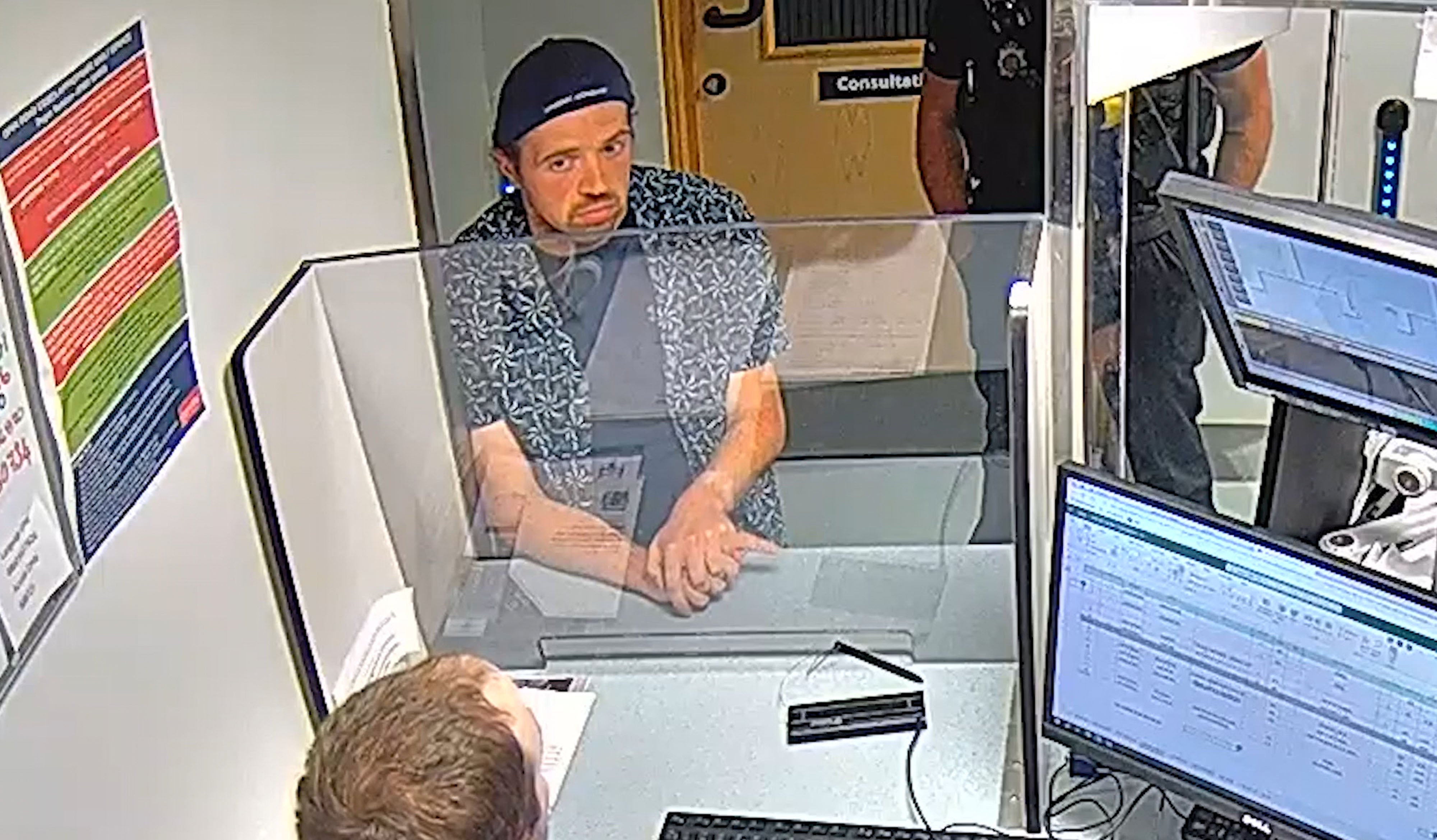The double killer who poisoned married couple in plot to steal company - and watched them die on secret camera
In a gross breach of trust, Luke D’Wit had inserted himself into the lives of Stephen and Carol Baxter while secretly poisoning them with an opioid painkiller, Holly Evans writes


For Stephen and Carol Baxter, their decades of hard work at establishing a successful company in the South East of England had nearly paid off.
Talks of a new house and dreams of travelling had been discussed, with both hoping to retire and spend their final decades in the company of loved ones.
Among those who were aware of their plans was Luke D’Wit, an IT worker who had been hired by Mr Baxter in 2012 or 2013 to help with the technical side of his shower mat business, Cazsplash.
The Baxters were unaware however that their trusting approach would lead to their deaths, after he poisoned them with fentanyl and sadistically watched on camera as they deteriorated under the effects of the powerful opioid.
The dangerous killer has now been jailed for life, and will spend a minimum of 37 years behind bars for his despicable crimes which has torn apart the lives of the Baxter family.
Believed to be honest and reliable, D’Wit had spent his time volunteering at a soup kitchen and working at the local carnival, showing no outward interest in money or accumulating wealth.

Within a matter of years, he had come to describe himself as “almost like a son” and had a close relationship with their daughter Ellie, who saw him as akin to a brother.
Despite her assertion that they had found him “weird”, there had been nothing to alert their suspicions that his behaviour might turn sinister, and with deadly consequences for Mr and Mrs Baxter.
But on 9 April last year, a 999 handler received a frantic call from their daughter, screaming that she had found her dead parents sitting in their armchairs in their conservatory.
Taking over the call as Miss Baxter wept, D’Wit described himself as a “friend” and calmly spoke to the operators until paramedics arrived.
He had been the last person to see the couple alive. He told officers that he had left their address at 7.55pm two days previously, and that they had been preparing to have dinner.
An analysis of Mrs Baxter’s pacemaker gave a three-hour window of estimated time of death, from 11am to 2pm on 8 April, and revealed that there had been “no spontaneous heart rhythm” by 9 April.
Initially treated as a witness rather than a suspect, D’Wit had helped by providing police with statements after an investigation was opened, once carbon monoxide poisoning had been ruled out by the fire services.

It gradually emerged however, that the 34-year-old who had helped administer Mrs Baxter’s medication had been secretly feeding her and her partner a cocktail of drugs that would lead to their deaths.
A toxicology report in June 2023 found that the powerful opioid painkiller fentanyl had been a factor in their deaths, with an analysis of their stomach contents suggesting they had ingested the drug orally.
Just a day after their bodies were discovered, their will was rewritten on D’Wit’s phone, leaving him as the “director and person with significant control” of their business. It added that all decisions should be directed to him. A solicitor described it to jurors as a “very odd document”.
And disturbingly, it emerged that a “mobile security surveillance application” had also been downloaded on D’Wit’s phone, which allowed him to monitor a camera from the couple’s conservatory. During the final moments of their lives, he watched on his phone as the Baxters first became incapacitated by the drugs, then died.
When he was eventually arrested at his work for their murders, patches of fentanyl were found in his adidas bag and his house was a “treasure trove of opened pills”, with a pestle and mortar also discovered.

More disturbing discoveries were made once police downloaded data from his numerous devices, with D’Wit shown to have used a number of fake identities to deceive and manipulate his victims.
These included a “doctor” from Florida called Andrea Bowden, who made medical recommendations to Mrs Baxter with “no clinical basis”. The fake medic told her that seeing family members “released too many chemicals in the adrenal gland”, and that she should keep less regular contact with her loved ones.
D’Wit also posed as a support group of false identities for sufferers of Hashimoto’s disease, the thyroid condition Mrs Baxter suffered from; and a solicitor to convince their family that the will he had forged was real.
In another cruel twist, he pretended to be a theatre producer called Jenny, in a bid to gain their daughter’s trust by promising to help her further her career as a singer.
“Jenny” requested a number of songs from Miss Baxter, including “I’d Do Anything” from the musical Oliver!, which she recorded with the assistance of D’Wit.

They had exchanged numerous messages each day, with “Jenny” responding to the news of her parents’ deaths with a message saying: “Oh no my darling sweetheart I’m so sorry.”
Breaking down in court, Ms Baxter told jurors: “‘Jenny’ was a trusted person, I thought that she was there to help, I thought she was a real person.”
While D’Wit claimed that the fentanyl found in his bag was to be taken to a pharmacy, pills with quadruple doses of promethazine were also found.
“There can only be one purpose for having these and that’s to fool someone into believing they were taking a proper dose when they were actually taking four times the amount,” prosecutor Tracy Ayling said.
The barrister said D’Wit “in the cruellest possible way was overdosing Carol Baxter on promethazine”, causing symptoms “like dementia, Parkinson’s and probably a stroke”.
Despite D’Wit’s denials, he was found guilty of murder by the jury and is now facing life behind bars.
Describing him as “one of the most dangerous men I’ve ever experienced”, Detective Superintendent Rob Kirby, of the Kent and Essex Serious Crime Directorate, said: “I have absolutely no doubt that had he not been caught, he would have gone on to commit further murders.”
DS Kirby said that “justice has been served today”, adding that D’Wit “rightly belongs behind bars”.
He said: “He befriended people, came across as a very amenable, helpful person but in the background he was a cool, calculated killer who spent years planning the demise of Carol and Stephen Baxter.” D’Wit is due to be sentenced on Friday.
